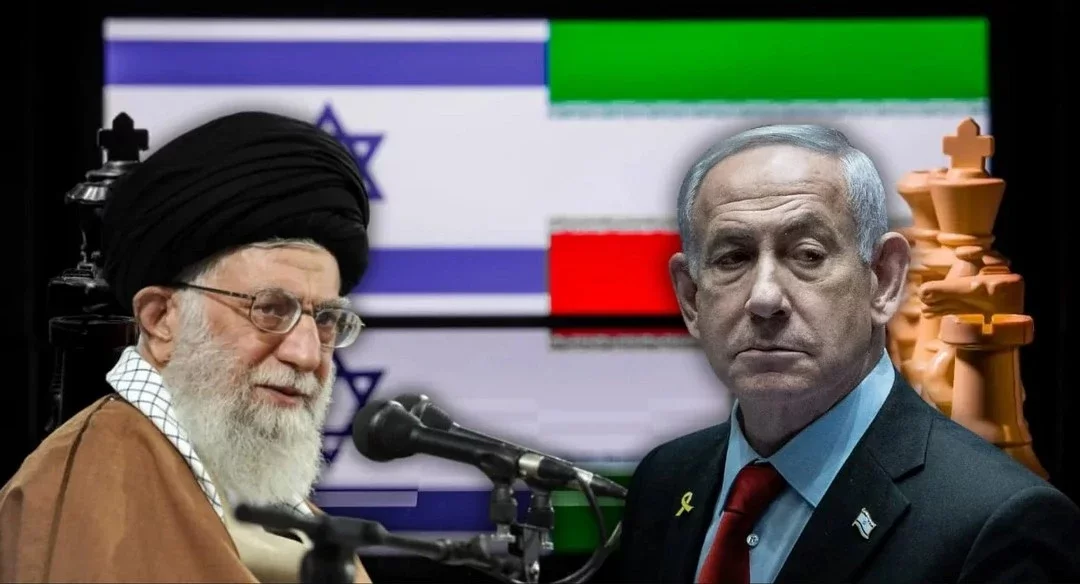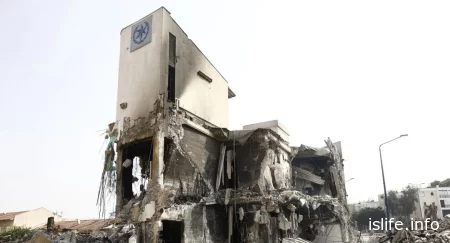The Iran-Israel conflict, also known as the Iran-Israel conflict, is one of the most complex and dangerous standoffs in the Middle East. Tensions between the two countries reached a new peak when Israel launched massive airstrikes on key Iranian military installations. These actions raised serious concerns about the possible closure of the Strait of Hormuz, which could significantly affect the global economy. We will try to analyze the history of the Iran-Israel conflict, its current state and implications for global markets.
↑ History of the Iran-Israel Conflict
The conflict between Iran and Israel has deep historical roots dating back to the mid-20th century. After the Islamic Revolution of 1979 in Iran, relations between the two countries deteriorated sharply. Tehran has begun actively supporting anti-Israel movements such as Hezbollah and Hamas, leading to numerous military clashes through proxy wars.
For decades, the two sides have accused each other of destabilizing the region. Israel views Iran's nuclear program as an existential threat, while Iran criticizes Israel's policies toward the Palestinians. Tensions have increased in recent years with a series of mutual airstrikes and cyberattacks, making war between Iran and Israel increasingly likely.
↑ Current situation: massive airstrikes and threat of closing the Strait of Hormuz
In response to the Israeli airstrikes, Iran has launched ballistic missile attacks and has also declared its readiness to take drastic measures, including closing the Strait of Hormuz. This strategic waterway is a key route for oil transportation, through which about 20% of the world's oil supplies pass. Closing the Strait could have serious consequences for global logistics and the economy.
Reasons for the threat:
- The strategic importance of the Strait of Hormuz for Iran.
- Tehran's desire to put pressure on the international community and Israel.
- The possibility of using the Strait as a tool for escalating the conflict.
If Iran closes the Strait of Hormuz, it will cause an immediate increase in energy prices and create problems for shipping in the region. Such a scenario would be catastrophic for the global economy, especially for countries dependent on oil and gas imports.
↑ Consequences for the global economy
↑ Energy crisis
One of the main consequences of a war between Iran and Israel will be the impact on the global energy market. If Iran closes the Strait of Hormuz, it will lead to the following consequences:
- A sharp increase in oil and gas prices, which will put pressure on the global economy.
- Increased fuel costs for aviation, road transport and manufacturing.
- Increased logistics and delivery costs.
An energy crisis could trigger inflation and slow economic growth in countries dependent on energy imports.
↑ Global trade flows
Blocking the Strait of Hormuz will also impede the movement of ships carrying not only oil, but also other goods. This will affect logistics and increase the cost of shipping products, especially for countries in Asia, Europe and Africa. Food supply chains could also be disrupted, leading to higher food prices.
↑ Financial Markets
Global financial markets are sensitive to geopolitical risks. An escalation of the Iran-Israel conflict could cause:
- A fall in stock prices and increased volatility on stock exchanges.
- A strengthening of "safe" assets such as gold and the Swiss franc.
- A decline in investor confidence in emerging markets, especially in Asia and Africa.
↑ Sanctions and their economic impact
If the conflict between Iran and Israel escalates into a more widespread confrontation, the international community could impose new sanctions on Iran. This would worsen the country's economic situation and limit its ability to export oil and gas. However, sanctions will also have a negative impact on countries dependent on Iranian energy resources.
↑ How will investment strategies change?
Investors should prepare for possible changes in the wake of the war between Iran and Israel. Key recommendations include:
- Portfolio diversification: Investors should consider including renewable energy assets such as solar and wind in their portfolios.
- Focus on safe havens: Gold, developed market government bonds, and highly liquid currencies such as the US dollar can be safe bets in uncertain times.
- Monitoring the energy sector: Companies involved in the extraction and processing of alternative energy sources can reap significant benefits.
↑ Possible scenarios
↑ Conflict containment
If the international community can prevent the escalation of war between Iran and Israel, the economic impact will be minimal. However, this will require the active participation of diplomats and international organizations.
↑ Escalation to the regional level
If the conflict expands to other countries in the Middle East, the consequences for the world economy will be catastrophic. This could lead to a global economic crisis similar to the oil shock of the 1970s.
↑ Long-Term Changes
Regardless of the outcome of the Iran-Israel conflict, its aftermath will have a long-term impact on global politics and economics. This could include a stronger role for China and Russia in the region, as well as accelerated development of renewable energy sources.
↑ Conclusion
The conflict between Iran and Israel remains one of the most serious threats to the stability of the Middle East and the global economy. A war between Iran and Israel, if it escalates into a full-scale confrontation, could lead to higher energy prices, disruption of trade routes, and global economic instability.
Investors should closely monitor developments, especially the possibility of Iran closing the Strait of Hormuz. In an environment of global interdependence, the consequences of such a standoff will affect not only the region, but the entire global economy. However, timely adaptation and diversification of investment strategies will help minimize risks and maintain portfolio stability.



